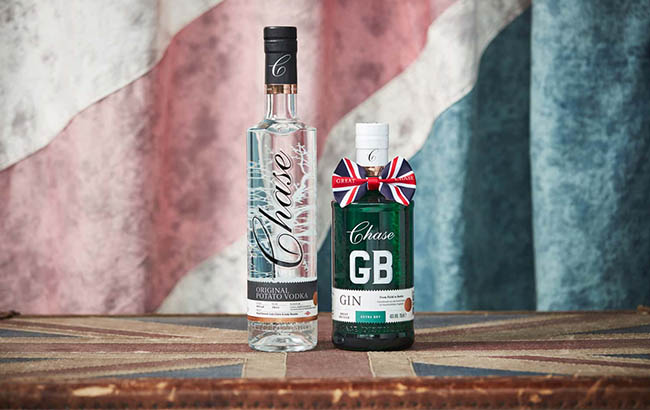Chase Distillery shuts as distillation moves to Cameronbridge
Diageo has closed Chase Distillery and moved production to Scotland due to “substantial change” in the vodka and gin categories.

Diageo acquired Chase Distillery in 2021. William Chase, the man also behind crisp brand Tyrells, was the founder of the eponymous distillery in Herefordshire.
Following the production move, Chase distillation now takes place at Diageo’s Cameronbridge Distillery in Scotland, which also produces Smirnoff, Gordon’s, Tanqueray and Pimm’s.
Chase Distillery employed 17 people, who were given the option of new roles in the Diageo company or redundancy.
A spokesperson for Diageo said: “The closure of the Chase Hereford site was announced in June 2024 and the process is now complete.
“Since acquiring Chase in 2021, we have seen substantial change in the vodka and gin categories.
“To future-proof Chase, we took the decision to renovate the liquid, revitalise the packaging, and transform the brand supply to drive its efficiency. These developments are designed to create future growth opportunities for the brand.”
A filing on Companies House in December revealed Diageo’s intention to liquidate Chase within the next 12 months, and transfer operations before 30 June this year.
The document shared the financial results for Chase Distillery in the year ended 30 June 2024. The company’s turnover increased by £623,472 (US$765,264) to £5.29 million (US$6.5m), compared with £4.66m (US$5.7m) in the previous year.
Geopolitical and macroeconomic volatility were also highlighted in the report.
“Geopolitical forces, driven by several vectors globally, coupled with macroeconomic stress, increase the likelihood of international and domestic tensions, disputes, conflict, unrest and crime that might impact the business,” the report said.
“Macroeconomic conditions include inflationary pressures, unemployment and global trade tensions. Financial volatility risk could arise from variability in financial markets, interest rate fluctuations and currency instability.
“Failure to react quickly enough to changing economic and/or political conditions, e.g. inflationary pressures, currency instability, global trade tensions, heightened political protectionism, changes to customs duties and tariffs, and/or eroded consumer confidence, may impact on the freedom to operate in a market and could adversely impact financial performance.”
Related news
Diageo CEO Debra Crew steps down
